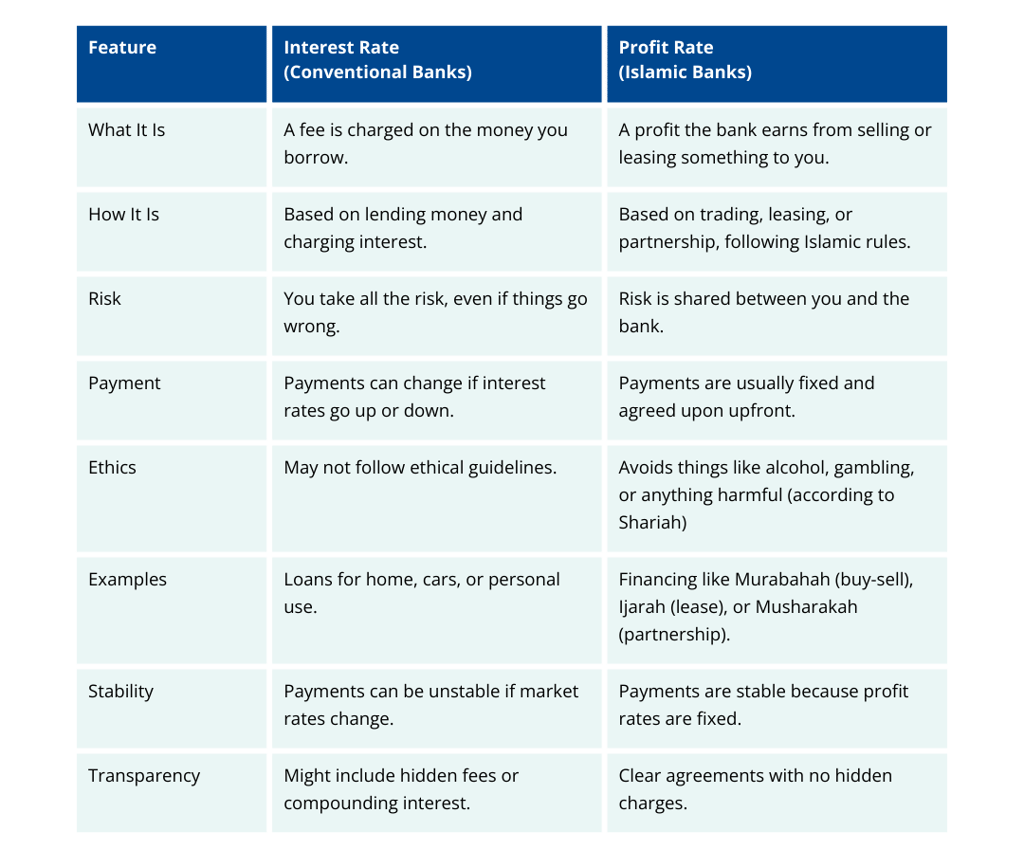5 Myths About Shariah-Compliant Finance
Debunk common myths about Shariah-compliant finance and learn the facts about ethical financial planning.
ISLAMIC FINANCE BASICSSHARIAH-COMPLIANT INVESTMENTS
BeShariahWise
1/8/20254 min read


Introduction
Islamic finance is a rapidly growing part of the global financial system.
It offers transparency, fairness, and practices that are not compliant with Shariah principles, such as Riba (interest), Gharar (uncertainty), and investments in prohibited sectors.
Despite its benefits, misconceptions still exist, often preventing people, even Muslims themselves, from exploring its potential.
In this article, we will debunk 5 common myths about Islamic finance, helping you understand how it works and why it's a valuable option for ethical financial planning.
Myth #1: Islamic Finance is Only for Muslims
The Myth: Many people believe that Islamic finance is exclusively for Muslims.
The Truth: This is a widespread misconception. Islamic finance is open to anyone, regardless of their religion. While it adheres to Islamic principles, its benefits are universal. Ethical investing, transparency, and a focus on fairness make it appealing to individuals of all faiths.
Many non-Islamic banks have Islamic windows to offer Islamic banking solutions, such as HSBC Amanah, Standard Chartered Saadiq, and BNP Paribas Islamic Financial Services.
Example: In Singapore, Islamic banking products from banks like CIMB and Maybank, as well as other Islamic financial products, are available to all customers, regardless of their religion.
Myth #2: Islamic Finance is Drastically Different and More Complicated than Conventional Finance
The Myth: Some people think that Islamic finance is vastly different and more complex than conventional finance, making it difficult for the average person to understand.
The Truth: While Islamic finance operates based on Shariah principles, its financial products can resemble conventional methods on the surface. In fact, almost all conventional finance products have their counterparts in Islamic finance.
The main difference is that Islamic finance is asset-based, whereas conventional finance is currency-based (or credit-based).
Instead of utilizing interest, Islamic finance employs methods like profit sharing, leasing, and trade-based transactions. The return is based on the transaction of the actual asset or investment rather than interest on money loaned.
In reality, many Islamic banks offer resources to explain their services in a clear and simple manner.
Pro Tip: Don't be intimidated by the terminology of Islamic finance. Look for providers who are transparent and offer good customer support to help you understand the options. For general information on Islamic finance, there are many reliable resources online. Shariah advisory firms also provide content explaining the complex structures and contracts of Islamic finance.
Myth #3: Islamic Finance cannot Generate Profit
The Myth: A common belief is that Islamic banks cannot generate profit because they do not charge interest (Riba). There is a perception that avoiding interest-based earnings leads to lower returns on investments.
The Truth: Islamic banks are indeed concerned about profit and seek justified returns. Today, Islamic financial products offer competitive rates that make them a viable alternative to conventional finance. For example, an Islamic window in Singapore can offer a profit rate of up to 3.30% p.a. on regular savings accounts.
Islamic banks use a variety of Shariah-compliant methods to generate income. These methods include:
profit-sharing,
leasing, and
trade-based transactions.
These mechanisms can be as profitable, if not more, than conventional methods.
Shariah-compliant investments focus on productive assets like equity in profitable businesses, real estate, and Sukuk, which can perform competitively. Additionally, avoiding high-risk ventures ensures a more stable portfolio.
It is a myth that Islamic investors are only charitably motivated and unconcerned about returns.
In reality, both profit and social return are taken into account.
Pro Tip: Consider the long-term returns and the ethical implications of where your money is invested when choosing a financial product, not just the profit aspect.
Table Comparison of Interest Rate vs Profit Rate
Myth #4: Islamic Finance is More Expensive
The Myth: It is often thought that Islamic finance is more expensive than conventional products, such as the case for loans and mortgages. They are perceived to have higher fees and limited affordability.
The Truth: While this may have been true in the early stages of Islamic finance, it is no longer the case. Although some products may involve additional costs such as for compliance certifications and other processes that are required to make the product Shariah-compliant, many Islamic financial products are competitively priced or even more affordable than conventional options, making them a viable alternative to conventional finance.
For instance, Islamic financing often uses fixed rates, which means that your payment terms remain constant and predictable, offering stability, unlike conventional loans with fluctuating interest rates.
Pro Tip: Compare the overall costs and terms of different financial products, including fees and long-term stability.
Myth #5: Islamic Finance is Not Competitive in the Marketplace
The Myth: Some might believe that Islamic finance is unable to compete in the marketplace and offers limited choices, making it unsuitable for modern financial needs.
The Truth: Islamic finance provides a wide range of options for savings, investments, and financing, many of which mirror conventional products but adhere to Shariah principles. Islamic finance has grown significantly over the past few decades, reaching $3.38 trillion in assets as of 2024. This demonstrates that Islamic finance is not only able to compete but is also experiencing steady growth.
The industry is increasingly innovative, using technology and sustainability. With global growth, Shariah-compliant products are expanding rapidly, providing diverse options to meet personal and corporate financial needs.
Pro Tip: Don't dismiss Islamic financial products based on misconceptions. Do your research and consider the various options available in the market.
Conclusion
Islamic finance offers ethical, transparent, and competitive financial solutions that are accessible to everyone.
By debunking these common myths, we hope to encourage more people in Singapore and beyond to explore the benefits of aligning their financial practices with Shariah principles.
Take the first step toward ethical investing by learning more about Shariah-compliant options available in the country.
Whether you are Muslim or simply value fairness and sustainability, Islamic finance provides a way to achieve your financial goals responsibly.


BeShariahWise
Educational Shariah screening and compliance consultation for individuals and families in Singapore.
Services
© 2025 BeShariahWise - BSW SOLUTIONS (UEN: 53506307E)
We do not provide financial advice, investment recommendations, or sell financial products.
Contact
Email: salaam@beshariahwise.com
Phone/WhatsApp: +65 9646 4283
Join our updates:
Legal & Compliance
Compliance notice
“By subscribing you agree to receive educational emails from BeShariahWise. You can unsubscribe anytime. We don’t sell or share your data.”
BeShariahWise provides educational screening and Shariah compliance consultation. We do not give financial advice, recommend specific financial products, or conduct regulated activities.
Not financial advice.
All rights reserved. Educational screening & consultation. Not financial advice.
